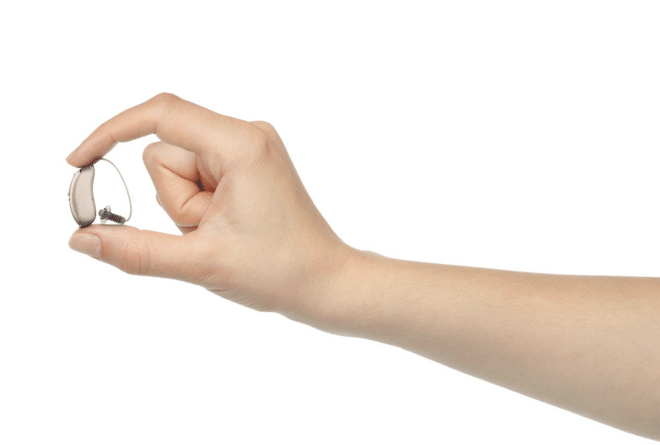Need Help Fixing Your Hearing Aids in TX & LA?
Hearing Aid Troubleshooting Tips From Our Experts
While hearing aids are generally low-maintenance devices, you may experience issues with them every now and then. Whether your hearing aids feel like they don’t fit properly or the sound isn’t amplified enough, the experts at Estes Audiology are here to help with hearing care centers located throughout Texas and Louisiana. Below, our hearing care professionals have included some helpful troubleshooting tips for hearing aids that aren’t functioning properly. Contact us today to learn more and schedule a one-on-one consultation with one of our hearing care professionals.
Getting the Most Out of Your Devices With Daily Care
Hearing aids are made of strong and durable parts, but handling them with care is still important. Always use a secure grip to ensure you don’t drop them when you hold them. Your hearing aid daily care checklist should include the following:
- Sound Check – Your hearing care professional will program your hearing aids, but it’s still important to ensure they provide clear sound daily. Before inserting them in the morning, you can use a hearing aid listening tube to check the sound produced by the devices. These simple devices usually cost around $20 and allow you to check the sound from your hearing aids and ensure it’s clear. If you hear any feedback or the sound isn’t clear, you might need to have them inspected.
- Battery Test – If you use traditional hearing aid batteries, battery testers can be a valuable tool at the beginning of the day. Most disposable hearing aid batteries last one to two weeks, but a battery tester comes in handy if you’re not keeping track of when you replace them. If you plan on being out for long periods, keeping an extra pair of batteries with you just in case is helpful.
- Clean & Dry – After wearing them for a full day, hearing aids can collect dust, dirt, and grime. Before putting them on each morning, you should check to ensure they’re clean. You can use a soft, dry cloth to clean all the debris from your hearing aids. If you live in a warm climate, removing the batteries at night is a good idea to help everything air out.
Weekly Hearing Aid Care Tips
Throughout the day, earwax buildup can accumulate in your hearing aids. You can gently use a wax pick and brush to remove earwax from the devices. Forced air blowers are also helpful for cleaning dust and lint out of the small nooks and crannies. If you use behind-the-ear hearing aids, keeping the earmolds clean is essential. You can do this by soaking them in warm, soapy water. Allow them to completely dry out before putting them back in again. Be sure to remember the following:
- Hearing aids should never encounter moisture or water.
- Never use alcohol or baby wipes to clean your hearing aids. The chemicals could damage your devices.
- Never use a hair dryer to dry out your hearing aids.
Why Are My Hearing Aids Whistling?
If your hearing aids produce a high-pitched whistle or feedback sound, this could be due to several issues, including:
- Volume: If your hearing aids are turned up to full volume, the microphone might be picking up feedback from amplified sounds coming from the hearing aid. You can turn down the volume to see if that helps. If you consistently turn your hearing aids up to the maximum volume, you might need a hearing evaluation to see if your hearing has changed.
- Poorly-Fitted Ear Mold – Our bodies are constantly changing, including our ears. If you’ve lost or gained any weight, your ear molds may not fit properly, even if they did when you first got your hearing aids. Visit Estes Audiology for a professional refitting to see if that helps.
- Ear Wax: Ear wax accumulation in your ear canal or the hearing aid can cause whistling noises. Clean out any ear wax in your devices, and visit us for safe ear wax removal.
Why Is the Sound So Low?
A common reason the sound seems low on your hearing aids is a defective battery. If you use traditional batteries, use your battery tester to check their status. If you have rechargeable batteries, you might want to put them on the charging station for a few to see if it makes a difference. If it’s not a battery issue, it could be an issue with the programming. We can provide troubleshooting hearing aid ideas to resolve the issue at Estes Audiology.
The Importance of Hearing Aid Maintenance & Upkeep
Hearing aid maintenance starts with you. By properly cleaning and caring for your devices, you can protect them, extend their life, and maintain their functionality. However, scheduling a professional cleaning for your devices every four to six months is also important. In addition to thoroughly and properly cleaning the devices, a hearing care professional can examine them to check for damage and repair them if needed. Additionally, they can recalibrate your devices to ensure the performance level is still optimal.
Consult With Our Hearing Professionals Today
While it’s important for you to perform daily maintenance on your hearing aids, you can leave the big problems to the team at Estes Audiology. If your hearing aids aren’t providing the benefits they once did, contact us to schedule an appointment for hearing aid maintenance. Estes Audiology is committed to providing industry-leading care in our network of hearing centers throughout Texas and Louisiana. Contact us today to learn more, or schedule an appointment to take the first step towards better hearing.



